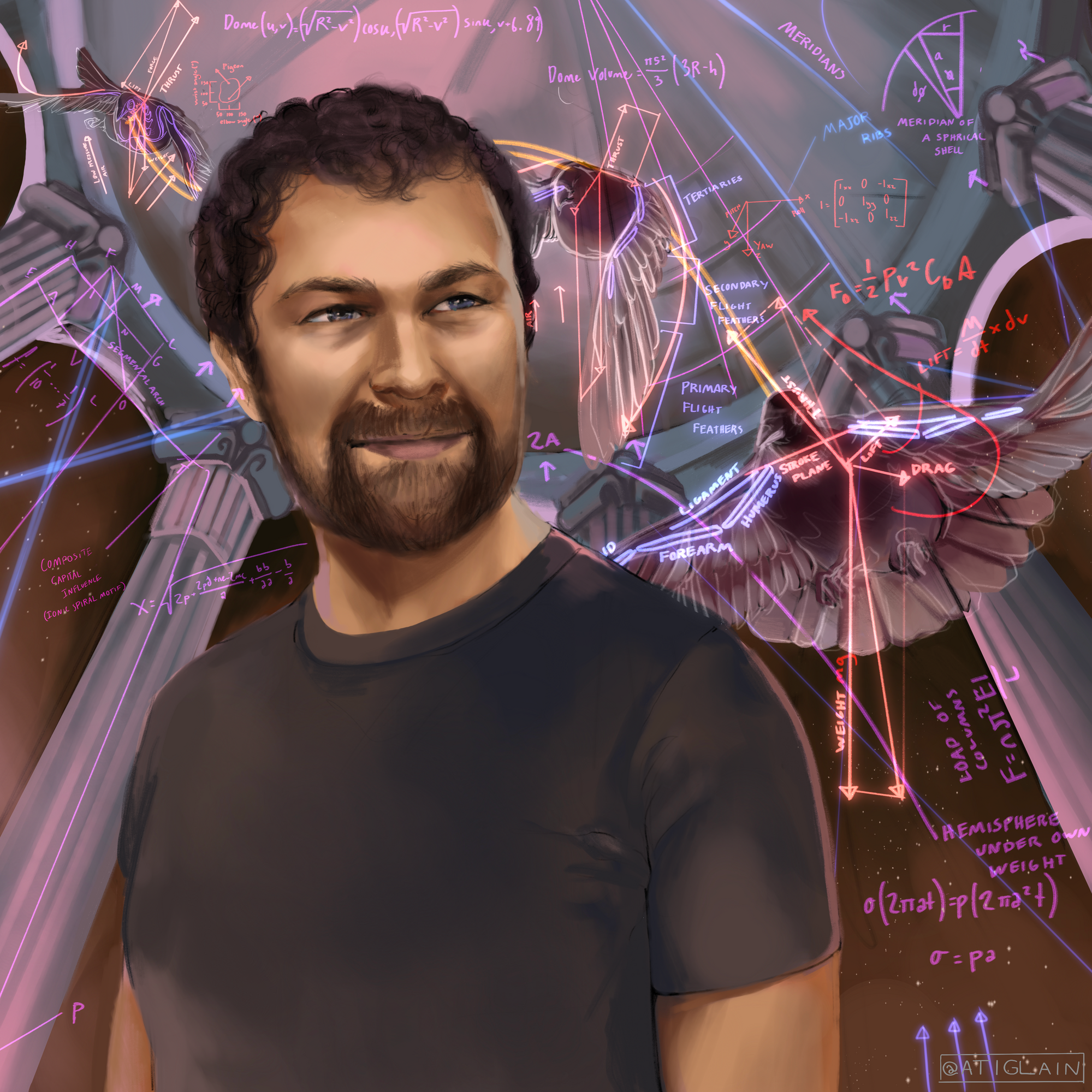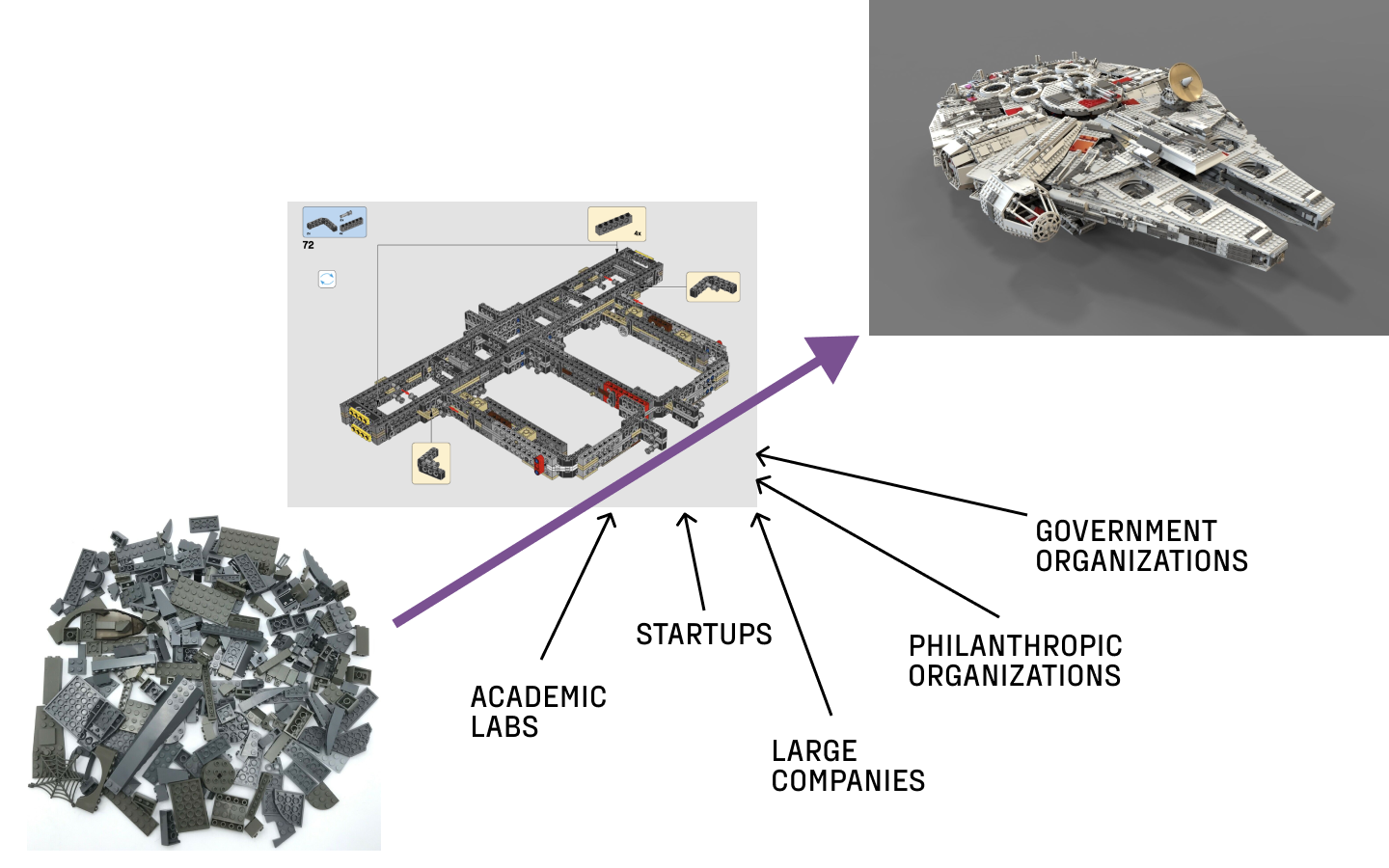
🥼 Ben Reinhardt wants to turn science fiction into science fact
To make science fiction into science fact, he has launched Speculative Technologies. A private DARPA.
Share this story!
The mission of Speculative Technologies is to create an abundant, wonder-filled future. He wants to do this by unlocking powerful materials and manufacturing technologies that don’t have a home in other institutions.
Ben Reinhardt's PhD dream was to build spaceships, but he soon realized that academia didn't align with his goal. Could it be that the perfect setting for his ambitious projects didn't exist?
A private DARPA
Reinhardt delved into the study of innovation systems, researching the history of how basic and applied science has been managed and funded. His extensive research, which included studying pioneers such as Vannevar Bush and Don Braben, led him to conceive a new and innovative system. This modified system was inspired by the US government's DARPA program but with a twist; it would be privately funded by investor-philanthropists.
DARPA, or the Defense Advanced Research Projects Agency, is a research and development agency under the United States Department of Defense. Its achievements have been remarkable. The Economist has called DARPA the agency "that shaped the modern world."
Warp News has told the story about DARPA's Grand Challenge. The competition that ignited the self-driving revolution.

A bright future won't arrive automatically
The future is full of possibilities, but it's fragile, writes Ben Reinhardt in an introduction to Speculative Technologies.
Over the past two centuries, we've witnessed a spectacular explosion of growth, invention, and discovery, which has led to technological and scientific progress. However, it's important to recognize that such trends depend on a complex ecosystem of cultural, institutional, and individual factors that require extraordinary effort beyond reason to sustain.

Here Reinhardt sees cracks in the system.
The likelihood of Shockley's work in transistors and Engelbart's creation of personal computing surviving in today's world is slim. Even Karikó's groundbreaking mRNA vaccine barely survived.
"How many game-changing technologies have died because they couldn’t find a home in our innovation ecosystem?, he writes.
And continues:
"Regardless of whether we’ve picked innovation’s “low-hanging fruit” or even whether invention and discovery has slowed down at all, we can do dramatically better."
The solution
Part of the solution is Speculative Technologies. They will find new ways of building things and new materials to build those things from.

They are starting with two programs:
Molecular Additive Manufacturing is creating heterogeneous materials whose structures can be specified down to nanoscale building blocks, potentially enabling us to engineer structures we depend on biology for today.
Nanomodular Electronics is building a two-step process for manufacturing custom, on-demand microelectronics without etching silicon or a traditional fab. The process of developing custom microelectronics could become as simple as printing a document.
They sum up their mission pretty nicely on the front page of their website:
"Speculative Technologies is a nonprofit research organization that runs coordinated research programs to unlock big-if-true technologies that are too speculative to be a startup but are too coordination- or engineering-heavy for academia alone."
You can help them succeed
- Join the funders club by donating small amounts here.
- For larger support, email them to discuss creating new programs, supporting an existing program, or supporting the organization as a whole.
- If you or someone you know has a program vision, please send them a one-page summary.
- Stay connected by checking for news updates, research results, and organizational learnings on their Substack.
And of course share this article about them. At the same time, you are supporting fact-based optimistic news.

By becoming a premium supporter, you help in the creation and sharing of fact-based optimistic news all over the world.



